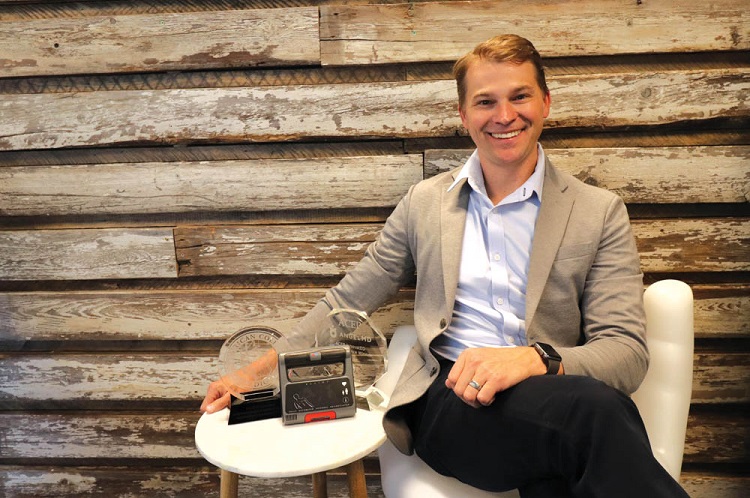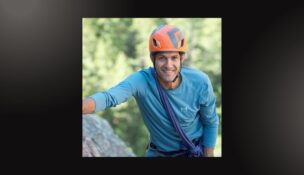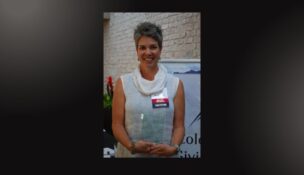HeartHero Increases Access to Live-Saving Defibrillators
Tech Startup: HeartHero closed a seed round of $2.1 million from 100 angel investors in 2018
Eric Peterson //July 12, 2019//


HeartHero Increases Access to Live-Saving Defibrillators
Tech Startup: HeartHero closed a seed round of $2.1 million from 100 angel investors in 2018
Eric Peterson //July 12, 2019//
Tech Startup: Heart Hero
WHERE: Denver
FOUNDED: 2016
Initial Lightbulb: “I’m a CIA medical officer turned entrepreneur,” HeartHero founder and CEO Gary Montague says.
Back home in Colorado, he thought back to his time working with “one of those James Bond Q types.” Montague wondered, “Why do defibrillators have to be so big?” The Q type responded that there was no good reason for it, noting, “Your cell phone battery has enough energy to shock somebody.”
Montague, who had experience as an emergency room physician’s assistant, researched the market and found that cardiac arrest was by far the world’s leading cause of death, but not much was being done to deal with it. “CPR is truly just not effective,” Montague says, citing a 7 percent survival rate.
But a shock from a defibrillator “is really effective,” he continues. If it comes within three minutes, survival rate jumps tenfold to more than 70 percent.
As the majority of cardiac arrests happen at home, Montague started HeartHero to develop “a truly affordable, portable device that is empowering to the layperson.” The startup now has three employees and works with a network of 30 contractors.
In a nutshell: After an abandoned attempt to make a smartphone-based defibrillator, Montague began working with several product and industrial design firms to develop Elliot, a 1.3-pound device that will retail for about $500. “We’re able to provide 20 lifesaving shocks out of a nine-volt battery,” Montague says.
HeartHero approached Duracell with a prototype in 2017, and the battery giant partnered with the startup to ensure off-the-shelf batteries were up to the task.The user simply pulls a tab and places the pad on the patient’s chest, and Elliot does the rest, even calling 911.
“This is not a medical device. I consider it a consumer device,” Montague says. “It comes down to ease of use and simplicity.”
HeartHero is working on its final version to be tested by the FDA by late 2019. “If all goes well, our goal is to be under Christmas trees by 2020,” Montague says.
Carrie Romero, aka Zapgirl, is a Tennessee-based AED (automated external defibrillator) advocate and survivor of five sudden cardiac arrests who has a defibrillator implanted in her chest.
“Access to these life-saving devices is the biggest challenge,” she says, noting that the price tag is typically too steep for churches and nonprofits, let alone the home. “Everyone should have access to one. If you have a beating heart, you are susceptible to sudden cardiac arrest.”
Romero learned of HeartHero in 2018 and has become an unpaid champion for the company. “This AED is going to change the world,” she says. “The fact that you can replace a Duracell battery in it and travel with it, that’s beautiful.”
Adds Montague: “Our company believes in life before profits.” Traditional defibrillator manufacturers (who often sell their devices for $1,500 to $2,000) “think we’re talking about a race to the bottom,” he adds. “I think that’s a disgusting term for a device that saves lives.”
The Market: “It’s huge,” Montague says. More than 120,000 defibrillators are sold in the U.S. annually, but the buyers (largely malls, arenas, casinos and other public venues) are often mandated to do so. However, 80 million Americans are at risk of sudden cardiac arrest, meaning a consumer device like Elliott has plenty of potential buyers.
“I’m disgruntled about the current solution for AEDs,” Montague adds. “They’re in a cabinet behind glass. Our mentality is to switch over to the EpiPen by your side.”
Financing: To launch HeartHero, “I took out a loan against my house, I depleted my savings, and I depleted my 401K,” Montague says. “I’m almost a zealot.”
HeartHero subsequently closed a seed round of $2.1 million from 100 angel investors, most of them physicians, in 2018, followed by a Series A of $4 million in 2019.


























